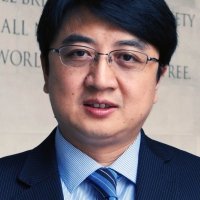Contested Memories and Reconciliation Challenges: Japan and the Asia Pacific on the 70th Anniversary of the End of the Second World War
Key Takeaways
- Barring a significant change in the way Northeast Asian politicians frame their platforms, history is likely to remain a significant obstacle to better regional relations for the foreseeable future.
- China and South Korea continue to see the inconsistency between how Japan discusses war history internally and how it addresses the topic externally as proof that Tokyo’s past apologies have been insincere.
- The United States must find a way to encourage international cooperation and conflict resolution without entrenching itself in Northeast Asia’s historical politics.
Seventy years after the end of World War II, unfinished postwar reconciliation continues to haunt relations between Asian nations. At the heart of regional tensions are Japan’s reflections, attitude and remarks toward this part of history which still arouse strong negative public sentiment, particularly in China and Korea. As the three major East Asian nations prepare to commemorate the end of war, the question is whether 2015 will mark the beginning of a new phase of reconciliation, or whether it will spur further historical animosity.
The Wilson Center’s Asia Program and Kissinger Institute, in collaboration with the Center for Peace and Conflict Studies at Seton Hall University and the School for Conflict Analysis and Resolution at George Mason University hosted a groundbreaking discussion on these issues with speakers from Japan, South Korea, China and the United States.
The discussion focused on the upcoming challenges and opportunities in the Asia Pacific with respect to identity politics. Speakers focused their discussion around a series of four questions:
- What are the most significant challenges to regional reconciliation today?
- What message should Prime Minister Abe include in his much-anticipated speech commemorating the end of World War II this summer?
- How should domestic constituencies in each country address the question of historical memory and reconciliation challenges?
- How do we move forward and facilitate reconciliation in Northeast Asia?
Challenging the Past
Japan’s greatest aspiration has been, and will continue to be, to move forward from its violent past. However according to Tatushi Arai, recent public opinion polls reveal a glaring divide over whether Prime Minister Abe should apologize in his statement commemorating the end of World War II. While a little over half of those polled support the inclusion of an apology, the remainder believes that anti-Japanese demonstrations in China and Korea as well as existing territorial disputes with China, make an apology unnecessary.
The greatest barrier to reconciliation for South Korea has most frequently been the perception that Japan wants to improve its bilateral relationships without looking to its historical wrongdoings as a starting point. Specifically as Ji-Young Lee points out, although Japan has apologized in the past for its wartime actions, recent official visits to the Yasukuni Shrine (a shrine that honors 14 Class A war criminals), its defense white papers and general refusal to acknowledge those actions in internally published textbooks give the impression that leaders in Tokyo are not as contrite as they claim. Lee would like to see Abe address these contradictions between Japanese officials’ words and actions, in the hope that such an acknowledgement would revitalize reconciliation efforts.
Zheng Wang echoed many of the points brought up by Lee. Like South Korea, China feels that the lack of a sincere apology by Japan has been the main reason for the lack of progress in reconciliation efforts. However, as Wang insightfully points out, there is no objective measure of an apology’s level of sincerity, and until China and South Korea forgo their insistence on Japan’s apology as a precondition to discussions, there can be no real resolution. According to Wang, the greatest difficulty Abe will have in drafting his commemorative speech is deciding which audience to address – his domestic constituency, China and South Korea (as Japan’s biggest wartime victims), or the United States and other allies. Although Wang recognizes this problem, he believes that the answer is ultimately irrelevant; the speech’s success will rely more on the attitude Abe adopts during its delivery than the nuance of the speech’s wording. Abe should include the Japanese government’s wishes for the future, as well as clear explanations addressing international doubts about Japan’s sincerity.
Gil Rozman urged the United States to avoid assuming a direct role in regional historical debates. At the same time, however, he argues that Washington has an obligation to encourage continued Japanese progress in democratic standards and emphasize “post-war positivity”, while simultaneously discouraging Japan from retaining any pride in its pre-1945 history.
Policy Recommendations
China (Zheng Wang)
- Change the domestic narrative that currently relies on history to define Sino-Japanese relations – a difficult feat given the weighty significance China attaches to its history;
- Beijing needs to shift away from the “one master narrative” way of thinking, both in politics and in the education of younger generations, in order to pave the way for constructive discussion in the future.
United States (Gil Rozman)
- Remain engaged in the region but avoid becoming entangled in regional historical debates.
- Continue to communicate to all parties that the United States is uninterested in finger-pointing.
South Korea (Ji-Young Lee)
- Adopt a more flexible posture with Japan and recognize (perhaps commend?) Japan’s own efforts to improve relations since 1945.
- Find the political courage to break away from old habits of using negative narratives and identity politics to frame historical issues as ‘us versus them’.
Japan (Tatsushi Arai)
- Much of the criticism Japan receives on the reconciliation issue is because other countries, the United States included, tend to view Prime Minister Abe as the representative voice for all of Japan. However, Japan is home to diverse opinions.
- Japan should create new channels that can display these different opinions and offer more avenues for reconciliation and holistic discussions.
History: Political Pitfall or Key to the Future?
All were in agreement about the dangers of looking at history in isolation, and acknowledged that while there is a desire to learn from East Asia’s dark past, no country has been successful at doing so alone. Hence, the way forward is not through single-sided efforts, but through the joint creation of new spaces for conflict resolution dialogue and renewed emphasis on cooperation mechanisms that the region can take collective pride in.
-Written by Michelle Neal
Speakers


Professor, School of Diplomacy and International Relations, Seton Hall University
Hosted By

Indo-Pacific Program
The Indo-Pacific Program promotes policy debate and intellectual discussions on US interests in the Asia-Pacific as well as political, economic, security, and social issues relating to the world’s most populous and economically dynamic region. Read more


Kissinger Institute on China and the United States
The Kissinger Institute works to ensure that China policy serves American long-term interests and is founded in understanding of historical and cultural factors in bilateral relations and in accurate assessment of the aspirations of China’s government and people. Read more


North Korea International Documentation Project
The North Korea International Documentation Project serves as an informational clearinghouse on North Korea for the scholarly and policymaking communities, disseminating documents on the DPRK from its former communist allies that provide valuable insight into the actions and nature of the North Korean state. Read more


Hyundai Motor-Korea Foundation Center for Korean History and Public Policy
The Center for Korean History and Public Policy was established in 2015 with the generous support of the Hyundai Motor Company and the Korea Foundation to provide a coherent, long-term platform for improving historical understanding of Korea and informing the public policy debate on the Korean peninsula in the United States and beyond. Read more
